My Journey to Becoming a Non-Diet Dietitian

I’ve been a dietitian for almost 10 years, but only recently started truly practicing Intuitive Eating. Since utilizing this approach I’ve seen a massive change in my client’s success rate. But this journey wasn’t easy for me – here’s how I went from being a weight loss/diet focused dietitian to a non-diet/anti-det, intuitive eating dietitian.

The first time I became aware of nutrition was in high school. It started after I gained some weight during my junior year (mostly related to puberty). What started out as a personal interest in nutrition and healthy eating quickly grew to more during a biology class my senior year, where I learned about how the foods we eat (or don’t eat) affect so much in our body. As I prepared to go off to college, I found out about that you could talk about nutrition and help people improve their health and wellbeing: a dietitian. I was all “sign me up!” and in college, I dove head first into the science coursework (well biology at least – chemistry I could have done without), totally fascinated by the workings of the human body. I used to say I wanted to go to med school just to learn more (my total fear of blood and bodily fluids actually preventing me from being a doctor). I double majored in dietetics and exercise science, combining my passions of nutrition and fitness in the hopes of eventually working with a sports team and – down the road – opening up a gym that included nutrition education, cooking classes and more (sounds normal now, but at the time nothing like this existed!).
The Dietetic Internship
I was dreading my dietetic internship, the year-long training program you have to go through to be eligible to become take the exam and become a dietitian, similar to a residency for doctors. I hated the idea of working in a hospital with sick people, yet I ended up in an internship that was very clinically focused. As it turned out, I fell in love with nutrition support and the experience of working in an intensive care unit. It was one thing to help someone improve their sports performance, but to actually help someone survive after a trauma, surgery or other illness? I loved it and after I passed my RD exam I ended up taking a job at NewYork-Presbyterian hospital where I worked in ICUs for over six years.
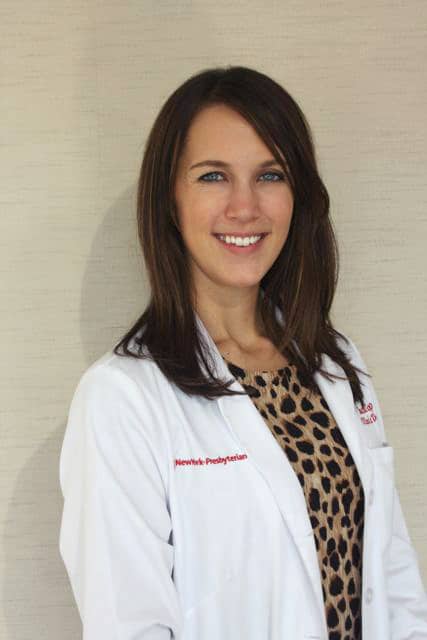
It’s Not All About Educating…
While I loved the work that I did at the hospital, it did nothing to prepare me for the work I do now. During my schooling and training, I was taught how to educate people about nutrition. If only people knew how many calories were in those French fries, or could see how many tablespoons of sugar were in a drink, then they’d make a different choice. So educate I did – through health fairs, presentations, speaking engagements, group coaching and one-on-one counseling. People were always genuinely interested in nutrition and what I had to say. I recommend calorie levels, weighed people, and applauded their weight loss. But over time, as I worked with more and more people I realized that despite their best efforts, no one was able to maintain the lifestyle changes that I was teaching them. Sure they’d do ok for a few months, but inevitably they would go back to their prior habits, feel like they failed, and stop coming to see me. I too felt like a failure – how come I couldn’t help them eat better?
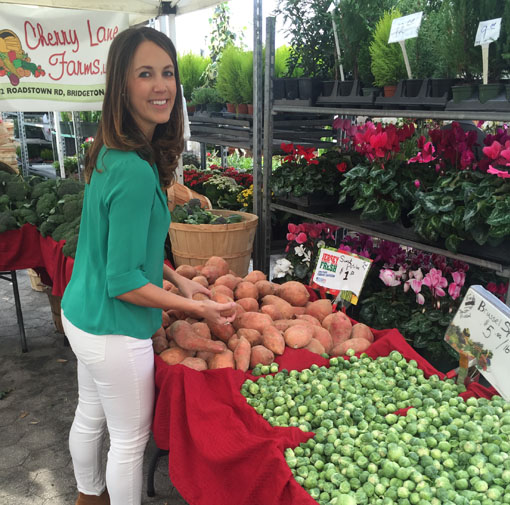
The Turning Point
It was around that time that I discovered mindful eating. It made so much sense to me: instead of counting calories or measuring portions, be more conscious of what you are eating and why. It was all about turning off autopilot and getting back in touch with the experience of eating. I started to call myself a non-diet dietitian and began teaching mindful eating. For a while I truly believed that I was coming from a non-diet philosophy, even though I was still building meal plans, giving food suggestions, and coming up with goals around meal prep, veggie intake, and more. Then I decided to take a six-week course on intuitive eating and everything changed. Immediately I realized how much I was contradicting myself. I was telling people to listen to their bodies, yet I was giving them prescriptive meal plans. I was saying, “listen to your hunger and fullness cues” yet I was suggesting they not go more than four hours without eating. As I delved more into intuitive eating and Health at Every Size (HAES) I realized I was still straddling a line between dieting and intuitive eating. Deep down I knew that weight loss is rarely maintained, yet I was still accepting clients who wanted to lose weight and was confident that “this one would be different”. But once I learned more and more about Intuitive Eating, there was no going back.
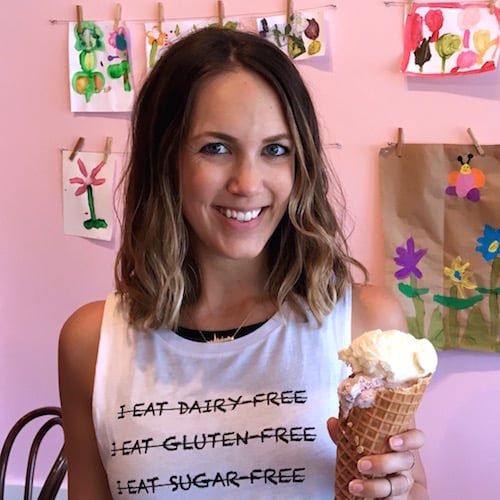
My Journey So Far
I’m not going to lie: it wasn’t an easy path and it didn’t happen overnight. The first few months after that initial Intuitive Eating course were rough. While at face value Intuitive Eating makes so much sense, it turned out to be much more of a mindset change than I expected. Many of the concepts behind Intuitive Eating and HAES were the opposite of what I was taught in school and what I had spent nine years teaching people. After being a dietitian for almost 10 years, I felt like I was starting all over again. I didn’t feel confident in my messaging, my counseling style or in my work with clients. Every single day I questioned my reactions and responses to clients, media requests, writing assignments and more. And even harder to face: the fact that I most certainly caused damage over the years with my diet talk.
I took a few months off from taking on new clients as I re-evaluated my coaching practice. I read Intuitive Eating and Health at Every Size, along with dozens of studies, blogs and research papers. I spent time talking and connecting with other IE/HAES practitioners. And slowly but surely, I evolved my mission and my message and grew confident in what I believed in.
Here’s what I believe (and don’t believe) in now:
- I believe in the importance of enjoying food…ALL food
- I believe in tapping in to your intuition and listening to what you need. If that means that meal prep stresses you out or you have to choose taking a nap over going to the gym, that’s ok!
- I believe that people of all shapes and sizes can be healthy and that you don’t need to lose weight in order to improve your health
- I believe that you can feel calm and confident around food without counting calories, weighing or measuring anything
- I believe that in order to truly heal your relationship with food, you have to completely leave nutrition out of it (at least to start with)
- I believe that any kind of external factor including diets, meal plans or calorie restriction of any sort will result in diet backlash including guilt, shame, stress, overeating and binging.
- I don’t believe in labeling food as “good”, “bad” or “forbidden”
- I don’t believe that it is your lack of willpower that has caused you to “fail” at dieting or losing weight (hint: it’s the diets fault)
- I don’t believe that there is any good diet
- I don’t believe in shaming people into making changes to their eating behavior
It’s been a learning process both personally and professionally as I confront some deeply held beliefs that were no longer serving my clients or me. But yet I’ve never regretted this shift in my practice – not for one minute. Because now I know without a doubt that I am truly helping people make peace with food and their body, and setting them on the path to a happier and healthier life – for the long run.
Looking for more intuitive eating support?
Check out my Unapologetic Eating 101 Course, an online, self-paced program to liberate yourself from dieting and make peace with food and your body.
My team and I also offer virtual one-on-one support – you can check out our virtual intuitive eating nutrition coaching packages.
My book, Unapologetic Eating: Make Peace with Food and Transform Your Life, is also a great resource that includes information, research, and reflection prompts to help you move away from dieting and come back home to your body, so you can live your most unapologetic, liberated life.
Author Bio
This article was written and reviewed by Alissa Rumsey, MS, RD, CSCS, a registered dietitian and Certified Intuitive Eating Counselor. She specializes in weight-inclusive care, intuitive eating, body image healing, mindfulness, self-compassion, and healing from chronic dieting, disordered eating, and eating disorders. Alissa holds a Bachelor’s Degree in Nutrition and Exercise Science, and a Master’s Degree in Health Communications, and is also an NSCA Certified Strength and Conditioning Specialist.
15 Comments
Leave a Comment
share the love
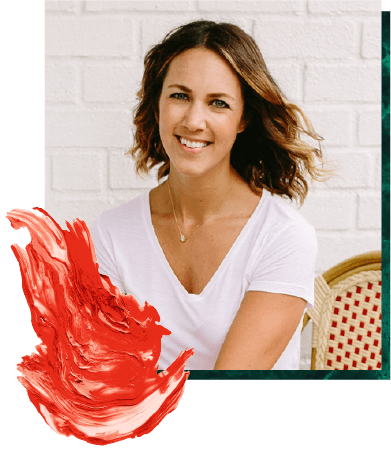
about
Alissa Rumsey, RD.
Alissa Rumsey, MS, RD, CDN, CSCS (pronouns she/her/hers) is a registered
dietitian, nutrition therapist, certified intuitive eating counselor, and the author of
Unapologetic Eating: Make Peace With Food and Transform Your Life. Alissa is
passionate about helping people reclaim the space to eat and live,
unapologetically.
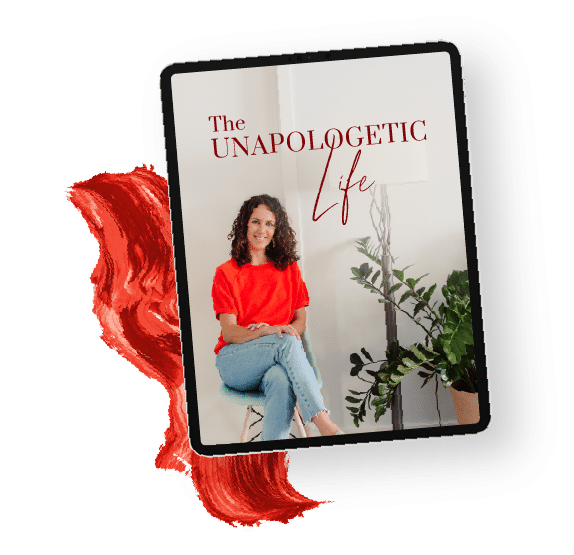
A twice-a-month round-up of inspirational stories, lessons, practical tips and encouragement for living your most authentic, unapologetic life.
The Unapologetic Life
RECENT POSTS
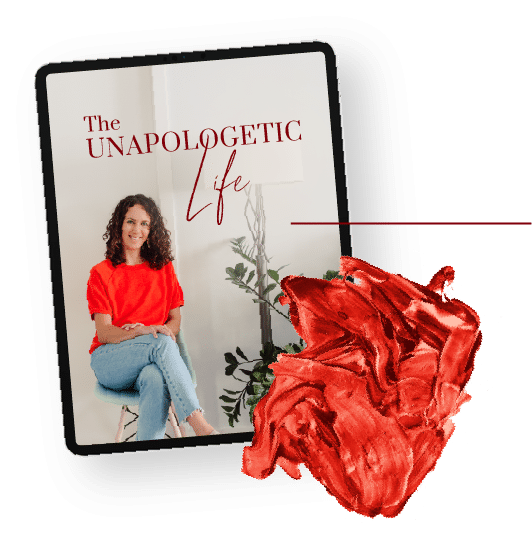
The Unapologetic Life
A twice-a-month round-up of inspirational stories, lessons, practical tips and encouragement for living your most authentic, unapologetic life.






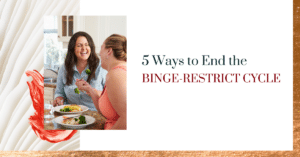
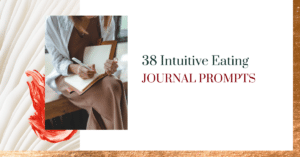
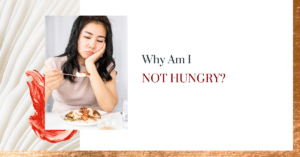
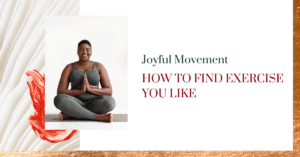
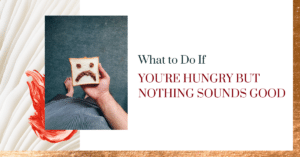
Great article. Right from the heart.
Thank you 🙂
Right on!!! I have such a similiar story!
Thanks Ashley! I think a lot of RDs have a story like this and it’s so helpful to share that – I know I felt much better once I realized I wasn’t alone in struggling with this process and mindset change <3
Hi Alissa,
I am also an RD. I’m just getting in to intuitive eating,but I feel like it has been something I have always felt is right before even knowing what it was. What are ways that you measure your clients success now that you don’t use a scale since you have seen the success rate go up? Has it been hard to get clients since they know you aren’t necessarily going to help them “lose weight?”
Hi Bre, I felt the exact same way about IE! It is a tough transition but SO SO worth it. I recently wrote a blog post about how to measure success in ways that isn’t weight-related: https://alissarumsey.com/intuitive-eating/ways-to-measure-progress/. It is definitely a paradigm shift, and most people that come to work with me still struggle with accepting their weight, but they’ve gotten to diet rock-bottom and are ready to try something else. So much of what I do also revolve around body image work as well. But I am super transparent that, while we can certainly talk about their desire to lose weight (and the diet culture/social reasons behind this), weight loss is not the focus or goal of our sessions.
Amazing article, I am studying to be a Registered Dietitian and I definitely resonate with your price. I am excited to see that the non-diet approach has allowed for so much success and growth for you and your clients and also that it creates a shift for a long term healthy lifestyle! Keep sharkng, you give me hope!
Best,
Dhaara
Thanks so much Dhaara!!
I am about to graduate with my Dietetics degree (I also have a degree in Kinesiology) and I’ll be applying for an internship soon. I love that this field exists! Thank you for putting into words what I am hoping to get into.
Congrats on finishing up your degree Heather, so exciting! Welcome to the field 🙂
I started my internship about 7 weeks ago and have felt completely disheartened as intuitive eating is not something I see at all. It’s all about weight loss in the hospital, and even in community nutrition I feel like the lessons being done in schools (right now I’m with EFNEP) are outdated and probably cause body image issues. I don’t want to be a dietitian who focuses on weight loss! I’ve considered going into eating disorders after my internship because I know some facilities use a mindfulness approach. But do you have any recommendations for careers other than a private practice where intuitive eating is used? Stumbled across your article while doing research for a presentation I’m going to give on intuitive eating to the EFNEP nutritionist but I’m really just feeling like the only person I’ve come across (in Dallas) who thinks this way.
Hi Ally, I hear you, it really stinks that IE/HAES is not in many nutrition curriculums (yet!). The movement is growing and I am seeing IE being used in lots of other settings. It can be tougher in a clinical setting because of the nature of a hospital (quick turnover, not much – if any – counseling time) but in outpatient settings, it can certainly work. We need more interns and students like you, I know it’s tough to be the odd voice out but it IS possible to practice from this standpoint, despite most of the curriculum being not aligned.
A few resources: There is a great FB group for IE/HAES students and new RDs that I recommend joining: https://www.facebook.com/groups/1085402828267535/. This is a great place to find your tribe and seek out more like-minded RDs and RD-2-be’s
I also highly recommend following and connecting with Lauren Newman (on Instagram https://www.instagram.com/gofeedyourself_/). She did 2 interviews on the RD Real Talk Podcast, episode #13 aired on May 25th and #14 airing May 18th, you can find it here: https://itunes.apple.com/us/podcast/rd-real-talk-podcast/id1208568777?mt=2.
I have loved this article. I have a lot to learn being that nutrition and dietetics is a new field here in Uganda. Iam among the pioneer graduates of Nutrition and dietetics.
Hi Ally I found your blog with a search on how to become a non-diet dietitian. I have been an RD for 3 years and became a part of this profession in part because of a recovery from an eating disorder in high school. I fell in love with this profession because of the science of food and nutrition (I am metabolic dictionary, I just love all of the pathways). I have never thought diets work and read Intuitive Eating before I ever became a nutrition major. But somehow between finishing school and getting my first job as a dietitian I am in a place that is very weight focused and does not practice or help pts with intuitive eating unless those pts are part of our ED outpatient clinic. Long story short I am not happy with the programs and weight centered focus (i even have to teach a weight loss group), but I am really not in the position to look for a different job and I love the unique pt population I work with (which really is not possible anywhere but with this organization). Do you have any advice or resources to working on creating or educating on the IE approach and creating a non-diet culture in a larger clinic setting?
Thanks!
Hi Shannon, shifting the weight-centric approach can be a challenge in a larger clinic setting, but it is wonderful that you want to try – we need more advocates like you! I recommend joining the #inspirdtoseek FB group, as this conversation has come up a few times: https://www.facebook.com/groups/141384259679344/about/ – you can request to join here. I’d start by identifying some stakeholders at your clinic who you can approach. I’d then come up with a plan to present the research around weight-centric vs weight-inclusive care. Here are some resources to get started with that: https://rd2rd.com/vendor/heatherdcrd/ (check out Slide Deck: The basics of weight-inclusive practice), https://www.sizediversityandhealth.org/content.asp?id=34 (journal articles – check out ‘weight science’); also some specific articles that are good starting points: https://nutritionj.biomedcentral.com/articles/10.1186/1475-2891-10-9 and http://jeffreyhunger.com/uploads/3/4/4/8/34481134/hunger_smith___tomiyama__2020__-_sipr.pdf (just published!)